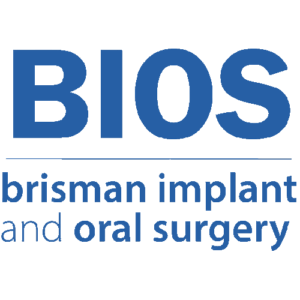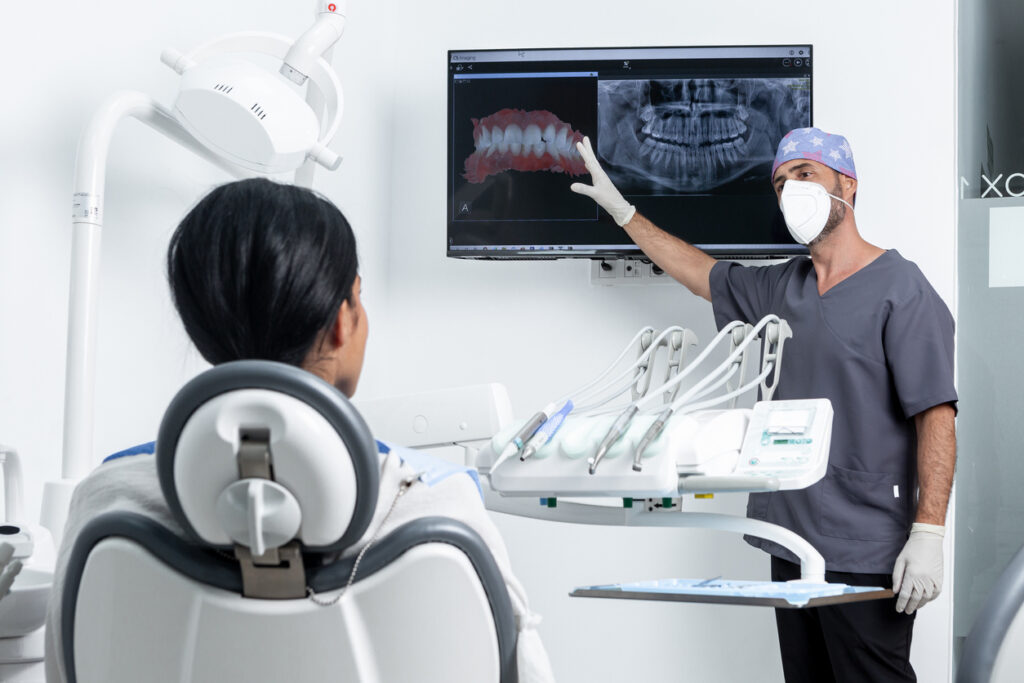When your dental needs go beyond routine care, an oral surgeon steps in to help. They’re specialists who handle oral surgery procedures because they underwent additional training for more complex oral issues, such as wisdom teeth removal and jaw reconstruction.
This guide will explain the essential aspects of oral surgery, helping you understand when you might need these services and what to expect during treatment.
What Is Oral Surgery?
Oral surgery involves various surgical procedures to address conditions and diseases in the mouth, jaw, and face that conventional dental treatments can’t resolve. This branch of dentistry ensures that functional and cosmetic issues can be effectively managed, improving quality of life. From reconstructive processes to routine extractions and corrective maxillofacial surgeries, oral surgery is a critical tool in maintaining and enhancing oral health.
Oral surgery offers numerous benefits that contribute to both immediate relief and long-term oral health. Here’s how undergoing oral surgery can significantly enhance your quality of life:
- Significant Pain Reduction. Oral surgery effectively relieves persistent pain from conditions like impacted teeth or TMJ disorders by addressing the root cause and providing lasting comfort.
- Improve Oral Function. It restores proper teeth and jaw functionality, improving chewing and speaking with procedures like corrective jaw surgery and dental implants.
- Enhance Appearance. Oral surgery enhances the aesthetics of your smile and facial profile through reconstructive procedures, boosting self-esteem and confidence.
- Overall Oral Health Improvement. By resolving complex issues, oral surgery reduces infection risks and promotes a healthier oral environment, supporting long-term dental well-being.
What Does an Oral Surgeon Do?
As mentioned, oral surgeons are highly specialized professionals trained through extensive education in a dental school and practical experience to handle complex dental and maxillofacial issues. They utilize a wide range of precise surgical procedures to address various conditions, improving the functionality and aesthetics of the oral and facial regions.
The following are some considered oral surgeries they perform:
Complex Tooth Extractions
Oral surgeons are adept at removing teeth that are difficult to extract, such as impacted wisdom teeth. These extractions are essential to relieve severe pain and prevent further complications like infection or the misalignment of other teeth. By expertly addressing complex extractions, oral surgeons provide relief and safeguard the overall health of the mouth.
Corrective Jaw Surgery (Orthognathic Surgery)
This surgery addresses jaw misalignment issues that can impact chewing, breathing, or speaking. Corrective jaw surgery is designed to enhance both function and appearance, reducing chronic jaw pain and improving overall facial symmetry. It is a transformative procedure that can significantly improve the patient’s quality of life by resolving bite issues and restoring balance to facial features.
Sleep Apnea
Oral surgeons offer surgical solutions to treat sleep apnea, a condition in which breathing repeatedly stops and starts during sleep. Procedures to remove excess tissue or reposition the jaw and tongue may be necessary to keep the airway open.
Facial Trauma
Oral surgeons specialize in managing facial trauma and performing reconstructive surgeries to restore facial structure and appearance after accidents or injuries. These procedures restore functionality and achieve an aesthetic balance, ensuring the individual regains confidence and normalcy in their daily interactions.
Temporomandibular Disorders (TMD)
Oral surgeons provide a variety of surgical applications for those experiencing facial pain due to temporomandibular joint disorders. These can include repairing or replacing the joint to relieve discomfort and enhance movement. Through joint surgeries, patients can find relief from chronic pain and regain the normal use of their jaw.
Oral and Neck Cancer
Oral surgeons are integral in diagnosing and treating oral and neck cancers. They perform excisions to remove cancerous growths and work closely with other specialists to deliver comprehensive cancer care. Surgically managing these conditions helps prevent the spread of cancer and supports recovery through targeted treatment strategies.
Other Common Oral Surgeries
- Dental Implants. This involves placing titanium posts into the jawbone to provide a stable foundation for artificial teeth, enhancing chewing ability and preventing bone loss. Dental implants are a durable and effective solution for missing teeth, restoring both function and aesthetics.
- Bone Graft Surgery. For patients experiencing bone loss, oral surgeons perform bone graft procedures to strengthen the jawbone, making it suitable for supporting dental implants. This treatment helps maintain facial structure and guarantees the longevity of implants.
Comparing Oral Surgery and Maxillofacial Surgery
While both fall under the same specialty, here’s how oral and maxillofacial surgeries differ in focus and scope:
Aspect | Oral Surgery | Maxillofacial Surgery |
Primary Focus | Mouth and teeth | Face, jaw, head, and neck |
Common Procedures | • Wisdom teeth removal • Dental implants • Basic tooth extractions • Bone grafting • Root canal surgery | • Jaw realignment • Facial reconstruction • Facial trauma repair • TMJ surgery • Face and neck tumor removal |
Treatment Area | Limited to oral cavity | Extended to entire face, head, and neck regions |
Complexity | Generally less complex | Usually more complex and extensive |
Recovery Time | Typically shorter (days to weeks) | Often longer (weeks to months) |
Anesthesia | Usually local anesthesia or conscious sedation | Often requires general anesthesia |
Hospital Stay | Usually outpatient | May require hospital stay |
Insurance Coverage | Often covered by dental insurance | Usually covered by medical insurance |
Pre-Surgery Planning | Fewer imaging requirements | Extensive imaging and planning required |
Collaboration | Works with general dentists | Works with multiple specialists (ENT, plastic surgeons, orthodontists) |
How Painful Is Oral Surgery?
Because of modern anesthesia and advanced surgical techniques, most patients experience minimal discomfort during oral surgery procedures. Your oral surgeon will ensure you’re comfortable by selecting the most appropriate type of anesthesia. After surgery, any discomfort can typically be managed effectively with prescribed or over-the-counter pain medication, along with following your surgeon’s recovery instructions.
Types of Anesthesia in Oral Surgery
Your comfort during oral surgery is a top priority, and your oral surgeon will recommend the most appropriate type of anesthesia based on your specific procedure and needs:
Local Anesthesia
- Numbs only the surgical area while you remain fully awake
- Commonly used for simpler procedures like basic tooth extractions
- Applied through small injections around the treatment area
- You’ll feel pressure but no pain during the procedure
Nitrous Oxide (Laughing Gas) With Local Anesthesia
- Helps you feel relaxed while remaining conscious
- Wears off quickly after the procedure
- Allows you to drive yourself home afterward
- Often used for patients with mild anxiety
Conscious Sedation
- Delivered through an IV or taken orally
- Makes you feel deeply relaxed and drowsy
- You’ll have limited memory of the procedure
- Requires someone to drive you home
- Ideal for longer procedures or anxious patients
General Anesthesia
- Puts you completely to sleep during surgery
- Used for complex procedures or extensive surgeries
- Monitored by an anesthesia specialist
- Requires recovery time and someone to drive you home
- Recommended for lengthy procedures or patients with high anxiety
Your oral surgeon will discuss these options with you during your consultation, considering factors like:
- Your medical history
- The complexity of your procedure
- Your comfort level and anxiety
- Your personal preferences
- The estimated length of surgery
How Should I Prepare for Oral Surgical Treatment?
Proper preparation is key to a successful and smooth oral and dental surgery experience. Here’s how you can best prepare yourself for the procedure:
- Consult with Your Oral Surgeon. Schedule a consultation with a reputable office, such as Brisman Implant and Oral Surgery, to evaluate your surgical needs. Discuss treatment options and address any concerns to guarantee a clear understanding of the surgical plan.
- Follow Pre-Operative Instructions. To minimize risks and complications, adhere to your surgeon’s guidelines, such as dietary restrictions or avoiding certain medications.
- Arrange Transportation. Most procedures involve anesthesia, so plan for someone to drive you to and from the surgery. Make sure you have reliable transportation arranged in advance.
- Set Up Your Recovery Space. Prepare a comfortable area at home with essentials like ice packs and soft foods. Keep prescribed medications and your surgeon’s contact information handy for post-operative needs.
By taking these steps, you pave the way for a less stressful and more efficient surgical experience, allowing you to focus on healing and returning to normal activities in a timely manner.
What to Expect During and After Oral Surgery?
Understanding what happens during and after oral surgery can help set realistic expectations and reduce anxiety. Here’s an overview of what you can expect:
- Anesthesia Administration. Your surgeon will administer anesthesia to provide comfort during the procedure. Depending on the surgery’s complexity, this may include local anesthesia, nitrous oxide, or general anesthesia, providing a pain-free experience.
- Efficient Surgical Procedure. Oral surgeries are conducted swiftly and with precision, minimizing trauma to surrounding tissues for a smoother recovery. Most procedures are completed within a few hours.
- Post-Surgery Care Instructions. Post-operative care instructions will guide you in managing pain, reducing swelling with ice packs, and maintaining oral hygiene. Following these instructions is essential for effective healing and avoiding complications.
- Gradual Resumption of Activities. Gradually resume normal activities as you heal, avoiding strenuous tasks until cleared by your surgeon. Focus on rest during the initial recovery phase to support healing.
- Follow-Up Appointments. Attend follow-up appointments to track your recovery progress. These visits allow your surgeon to adjust your care plan as needed and address any concerns you may have.
By knowing what to expect throughout the surgical journey, you can approach your oral surgery with confidence and focus, promoting a successful outcome and a smooth return to daily life.
Schedule Your Consultation With Our Experienced Oral Surgery Team Today!
Enhance your oral health with personalized solutions at Brisman Implant and Oral Surgery. Whether facing wisdom tooth extractions or contemplating complex jaw types of surgery, our experienced team provides effective treatment. Our cutting-edge facilities accommodate a variety of advanced procedures, providing both comfort and exceptional care.
Begin your journey to renewed confidence and optimal oral health. Schedule a consultation with our skilled and compassionate oral and maxillofacial surgeon today at Brisman Implant and Oral Surgery. Take the first step toward a healthier, brighter smile, which starts with us!


